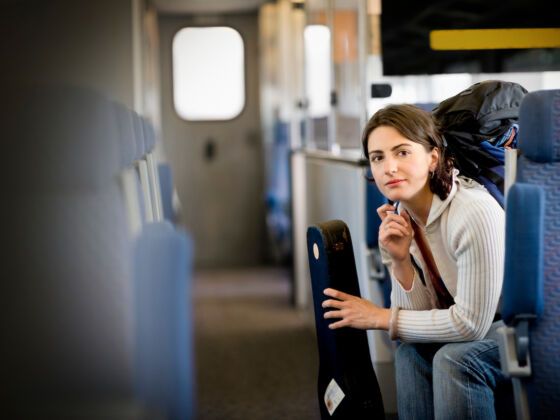IT WAS 36 HOURS INTO A 48 hour train ride between Tibet and Beijing. I’d waited too long to get my ticket, so I was stuck in a hard seat at the back of the train, my 6’3”, 230 pound frame jammed into a seat built for 2 but holding myself and 5 tiny Chinese travelers. The sun was rising, and we were zipping through a wooded rural village that was shrouded in morning fog. And, for perhaps 3 seconds, I saw her.


She was outside a small hut, about the size of the woodshed behind my parents garage, and she was chasing after a chicken with plodding, heavy, toddler footsteps. She was wearing only a diaper, and before she zipped out of my view, she looked up at me.
I doubt she saw me. I imagine she saw the train, the giant metal bullet that shot through her town twice a day, never stopping at their backwater station (because who would go there? Who would leave?), and she saw blurred outlines of human bodies behind the windows, some staring back at her, most looking straight ahead.
It occurred to me, in that moment, that I would almost certainly never see that girl again. That our paths were probably destined to cross just that once. We were separated by a thick layer of metal and a relative velocity of about 60 miles per hour, and we had a brief non-interaction. It was like a bird skimming the water. We almost touched — we got close enough to leave ripples on each other’s waves — but not quite.
“You know nothing.”
I obviously hadn’t slept for a bit. These are not the thoughts of a person who has slept, or who hasn’t experienced altitude sickness and gastrointestinal distress in the very recent past. They are not the thoughts of a man who smells okay, nor are they the thoughts of a man who isn’t silently hating his travel partner, who bought her train ticket early and as such, is 13 cars further up, fast asleep on a very comfortable mattress.
But that little girl, in those three seconds, was so familiar and so alien that I couldn’t get that singular, mundane image out of my head. I still can’t now, 7 years later. When toddlers walk, they lift their legs too high and slam them down to the ground, still unaware that they don’t need to kick the earth to stay up off of it. It is incredibly cute. It makes all their baby fat jiggle. It also makes them fall a lot, which doesn’t really matter, because they’re so close to the ground. This is what my nephews and nieces do when they walk. It’s what all children do when they walk.
But outside those basic human fundamentals, I shared nothing with this girl. I did not share the language which she was just then starting to learn. I did not share her quick access to chickens. I had not grown up in a home similar to hers, nor in a town like hers. I did not share the tinny music she heard from local radios, and we would likely never watch the same movies. I did not share a political or economic system with her. I barely shared with her a history.
The rules I had so painfully learned for navigating the world would do her no good — navigating my world is like winding through a series of intricate canals and labyrinths. Navigating hers is, I imagine, more like crossing an open ocean. But I can’t even say if that’s true. Maybe her life is easier than mine. I know literally nothing about her.
“There are more things on heaven and earth…”
Travel, up until that trip, had given me the delusion that I understood the world better than my peers back home. I’d seen more than they had. I’d eaten more foods, talked to more different people, had stranger experiences. Surely that made me a more worldly man than they were.
This naturally made me, at age 22, the ideal candidate for solving all of the world’s ills. We just needed human rights. We just needed to stop being greedy. We just needed to stand up for what’s right.
And so on.
But when my train zipped through that unknown town, I saw a world that my rules and ideas were totally useless in. I saw people who would never benefit from my wisdom. I saw people who would never think the way I think, and not because I would never have the chance to convince them, but because their experiences in life would be so fundamentally different to mine that we simply wouldn’t have enough common ground to speak on. My worldview, so energizing for me, would be totally inadequate for them.
“There are more things in heaven and earth, Horatio,” says Hamlet to his friend, “than are dreamt of in your philosophy.”
Someday, my kids will stomp the ground when they walk. Someday they’ll go out and see the world. But they’ll never save it. They’ll never even fully understand it. They were never supposed to. This earth is nothing if not humbling.